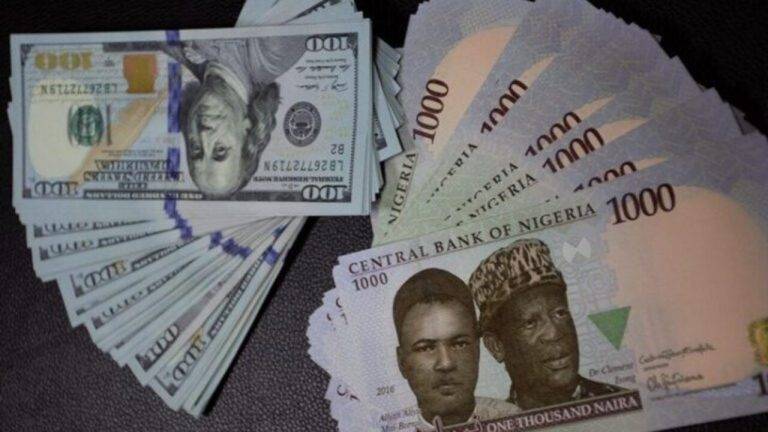The Nigerian currency, the naira, witnessed a notable uptick in its value against the US dollar in both the parallel market and the official Nigerian Foreign Exchange Market (NAFEM) on the most recent trading day. This positive development serves as a glimmer of hope amidst the ongoing economic challenges faced by the nation. Specifically, in the parallel market, the naira displayed resilience as it appreciated to N1,430 per dollar, marking a discernible improvement from its previous valuation of N1,470 per dollar observed over the preceding weekend.
Similarly, within the structured framework of the Nigerian Foreign Exchange Market (NAFEM), the naira exhibited commendable strength, with its value climbing to N1,408.04 per dollar. This noteworthy ascent is substantiated by data sourced from the Financial Markets Dealers Quotations (FMDQ), a reputable platform providing transparent insights into market dynamics. The figures revealed by FMDQ underscore the currency’s robust performance, with the indicative exchange rate for NAFEM plummeting to N1,408.04 per dollar from its previous standing of N1,431.49 per dollar recorded just the week prior. This impressive shift signifies a substantial appreciation of N23.45 for the naira within the official foreign exchange market.
Consequently, the disparity between the exchange rates prevailing in the parallel market and the structured NAFEM has notably diminished. The margin, which serves as a barometer of market dynamics and regulatory efficacy, narrowed significantly from N38.51 per dollar last week Friday to a more modest N21.96 per dollar. Such a convergence underscores the evolving landscape of Nigeria’s currency markets and the potential implications for various stakeholders, including businesses, investors, and policymakers.
Amidst the backdrop of global economic uncertainties and domestic fiscal challenges, this uptick in the naira’s value offers a ray of optimism for economic stakeholders. It may provide temporary relief for businesses grappling with currency fluctuations and inflationary pressures, potentially fostering a more conducive environment for investment and economic growth.

Naira
However, it is crucial to recognize that currency dynamics are inherently volatile and subject to multifaceted influences, including geopolitical developments, monetary policies, and market sentiment. Therefore, while the recent appreciation of the naira is a positive development, it is imperative for stakeholders to remain vigilant and adaptive to navigate the complexities of the ever-evolving economic landscape. Moreover, sustainable solutions addressing structural imbalances and fostering macroeconomic stability remain imperative for Nigeria’s long-term economic resilience and prosperity.
Source: guardian.ng










